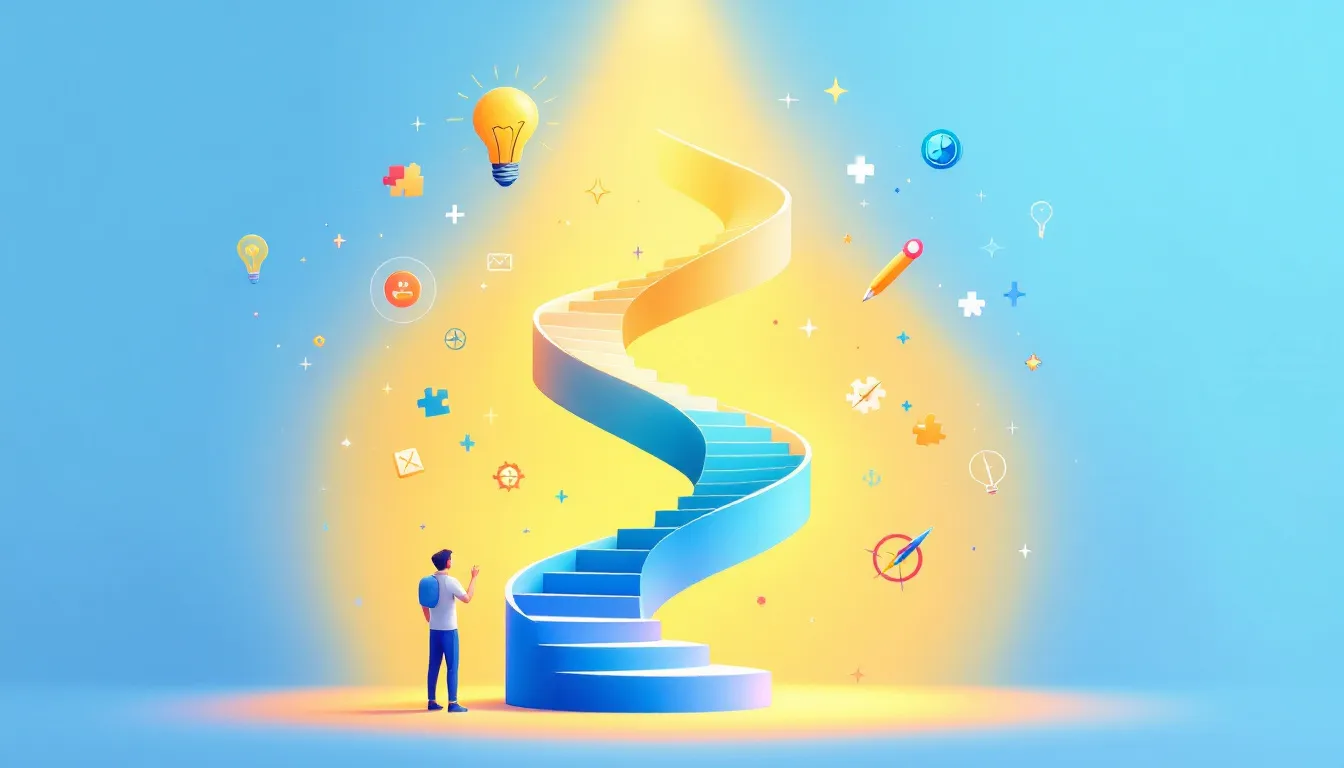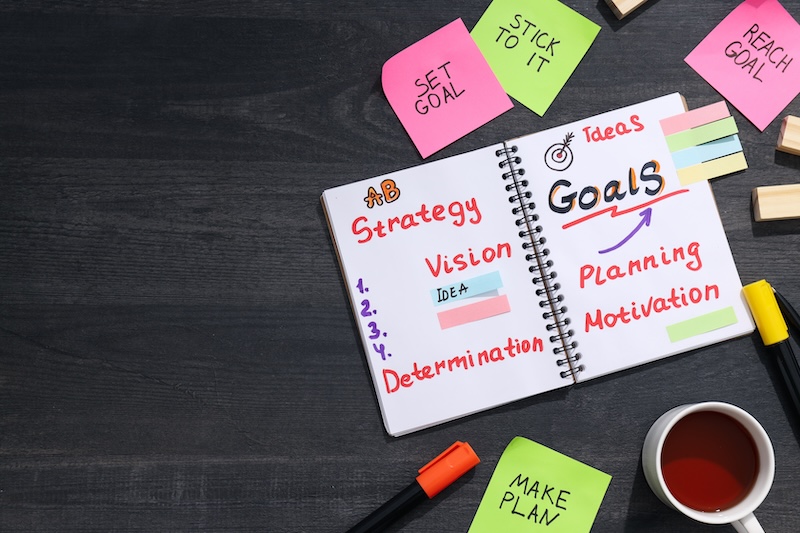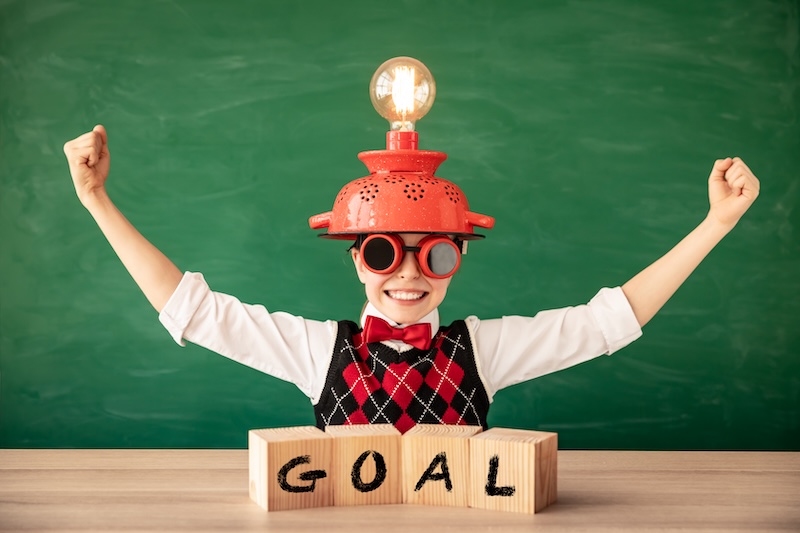Personal learning goals are your roadmap to achieving academic and personal growth. They help you stay focused, motivated, and aligned with your aspirations. By setting SMART goals, you create clear, structured, and actionable objectives that align with your aspirations and timelines.
Regular self-assessment and reflection on progress empower you to adapt your learning strategies, overcome challenges, and maintain motivation, ultimately leading to greater success in your educational journey. This article explains what personal learning goals are, why they are important, and provides practical strategies to set and achieve them.
Understanding Personal Learning Goals

Personal learning goals are the milestones that guide your educational journey, acting as a roadmap for both students and educators. These goals are vital as they enhance motivation, accountability, and the overall educational experience.
They not only support academic performance but also foster personal growth and professional development, making the learning process more meaningful and engaging.
Defining Personal Learning Goals
Personal learning goals are specific objectives or milestones that guide an individual’s educational journey. Unlike standard academic goals imposed by institutions, personal learning goals are tailored to individual aspirations and are often created with the support of educators. These goals can range from achieving specific grades to developing new skills or study habits, making the learning process more personalized and relevant to the student’s needs. It is essential to set personal learning goals to enhance this experience.
When students set their own goals, they take ownership of their education, enhancing engagement and investment in their learning journey. These goals support academic excellence and contribute to personal growth, fostering motivation while aligning with long-term career and personal development aspirations.
Ultimately, personal learning goals provide a structured plan that helps students navigate through their educational journey, tailoring their experiences to fit their unique strengths, weaknesses, and interests.
Why Personal Learning Goals Matter
Personal learning goals significantly enhance student motivation by providing clear purpose and direction. When students set their own goals, they feel a sense of accountability, boosting motivation to achieve them. This process helps track progress, reinforcing achievement and encouraging continuous learning.
Personal learning goals serve as a compass, guiding students and helping them stay focused and motivated. These goals increase awareness of needs and establish necessary supports, ultimately improving academic performance and creating meaningful learning experiences.
Crafting Effective Personal Learning Goals

Creating effective personal learning goals is essential for achieving both personal and professional development. Setting SMART goals and identifying clear learning objectives allows students to craft a structured plan that guides them towards success, including their professional development goals.
Setting SMART Goals
SMART goals, which stand for Specific, Measurable, Achievable, Relevant, and Time-Bound, are a powerful framework for setting effective learning goals. Educators often use the SMART acronym to structure learning goals that are clear and actionable, ensuring that students know exactly what they have achieved in their aspirations to achieve.
For instance, a specific SMART goal focuses on one particular outcome, making it easier to track progress and stay motivated. Measurable goals include concrete steps for tracking progress, while achievable goals are realistic and prevent frustration. Relevant goals align with long-term aspirations and values, and time-bound goals include a set deadline to help maintain motivation.
Following the SMART framework ensures that learning goals are precise and actionable, effectively guiding students towards personal growth and academic achievements.
Identifying Your Learning Objectives
Identifying clear learning objectives is crucial in setting personal learning goals. This involves setting expectations, conducting a skills gap analysis, and considering personal schedules and expertise levels. Understanding current abilities and desired outcomes allows students to pinpoint areas for improvement and set realistic skill set, engaging goals.
Benefits of setting well-defined learning objectives include improved attendance, fewer disciplinary issues, and increased engagement. Thoughtful decision-making about life after high school and aligning choices with aspirations can also enhance self-efficacy and academic performance.
Setting clear learning objectives ultimately helps students foster a love for learning and achieve success in their educational journey.
Writing Your Personal Learning Goals
Writing effective personal learning goals involves establishing specific targets for academic assignments. This includes setting short-term and long-term goals that facilitate effective mentor-mentee relationships and acknowledging achievements to promote a sense of accomplishment. Reflecting on achievements enhances motivation and confidence, helping students stay committed to their goals.
For instance, a student might set a short-term goal to improve their grades in a particular subject by dedicating extra study time and seeking help from a tutor. A long-term goal could involve mastering a new programming language or earning a certificate in an online course.
Setting clear and specific personal learning goals allows students to navigate their educational journey with purpose and direction, ensuring continuous growth and academic success through goal setting and achieving their student learning goal.
Examples of Personal Learning Goals for Students

Concrete examples of personal learning goals help students apply these concepts to their own educational journey. Goals can range from short-term, like improving grades or joining study groups, to long-term, such as graduating with honors or achieving significant milestones.
Short-Term Academic Goals
Short-term academic goals focus on immediate achievements within a short period. For example, a student might aim to practice writing one essay per week to achieve a B+ or higher by semester’s end. Another goal could be joining a public speaking club like Toastmasters to improve workplace skills. These specific goals provide clear, attainable targets that keep students focused and motivated.
Other short-term goals include earning a gold star for every book read, attending every live class session, or dedicating extra time to practice math skills with a tutor. Breaking goals into smaller milestones makes progress more manageable and maintains motivation, leading to better grades and increased confidence.
Monthly progress tracking can lead to a significant growth mindset and a sense of achievement.
Long-Term Academic Goals
Long-term academic goals focus on achievements spanning several years, guiding students toward significant milestones. For instance, graduating with honors is a common long-term goal. These goals provide clear direction, helping students stay focused and ensuring continuous growth and academic success.
Other long-term goals include mastering a foreign language, completing a degree program, or achieving high proficiency in a subject area. Setting long-term goals aligns educational experiences with career opportunities and personal development, leading to meaningful achievements and career growth through lifelong learning.
Tools and Techniques for Achieving Personal Learning Goals

Achieving personal learning goals involves using various tools and techniques to support the learning process. This includes organizing a study schedule, creating a productive learning environment, and utilizing pre-made resources to manage time effectively.
Utilizing Online Resources
Online resources are crucial for supporting learning goals and enhancing educational experiences. Digital platforms offer various resources, including online courses and study groups, to help students achieve their goals. Free educational resources like YouTube and open-access journals provide valuable insights and knowledge.
For example, a student might enroll in an online course to learn a new skill or join an online study group to collaborate with peers on challenging subjects. These resources make it easier for students to access information and support their personal learning goals, regardless of their location or schedule.
Leveraging online resources allows students to enhance their educational journey and achieve success in personal and academic endeavors.
Time Management Strategies
Effective time management is crucial for achieving personal learning goals. Here are some techniques that can help:
- The Pomodoro method helps maintain focus and manage study sessions.
- Time blocking, which allocates specific blocks of time for different tasks.
- Setting realistic deadlines to ensure tasks are completed on time.
- Breaking large goals into smaller tasks to make them more manageable and rewarding.
By implementing these strategies, you can enhance your productivity and communicate effectively to reach your learning objectives.
A dedicated study space and using calendars or apps for reminders can significantly enhance focus and productivity. Staying organized and taking regular breaks help maintain energy levels and contribute to better academic performance.
Effective time management is especially important in online learning, where balancing workloads and improving productivity can lead to significant achievements.
Monitoring Progress and Adjusting Goals
Regular self-assessment ensures that personal learning plans remain relevant and effective. Assessments, quizzes, or self-evaluations track progress and measure understanding, helping students stay on course. A structured reflection journal can clarify self-awareness and personal values and guide future goals.
For example, a student aiming to improve academic performance by regularly tracking progress and adjusting goals as needed. This process keeps students focused and motivated, ensuring their goals align with long-term objectives and aspirations.
Monitoring progress at their own pace and making necessary adjustments allows students to achieve success in their educational journey and personal development.
Overcoming Challenges in Achieving Personal Learning Goals
Achieving personal learning goals comes with challenges. Employing strategies to stay motivated, manage stress, and seek support helps students overcome challenges and continue their educational journey confidently.
Staying Motivated
Staying motivated is essential for achieving personal learning goals. Setting specific, exciting goals and creating a study schedule helps maintain motivation and focus. Celebrating small victories, like completing a challenging assignment or mastering a new concept, boosts motivation and recognizes progress. Maintaining a clear vision of long-term objectives keeps students focused and driven.
For instance, a student might aim to improve public speaking skills by joining a club and celebrating each successful speech. Setting meaningful goals and recognizing achievements enhances motivation and commitment, ensuring continuous growth and effective communication success.
Managing Stress and Self-Care
Balancing academics with self-care is vital for sustainable success. A healthy mind is crucial for developing creativity, concentration, and motivation. Students should schedule breaks for relaxation and hobbies to recharge and maintain a healthy balance between studies and personal well-being.
Incorporating regular exercise, hobbies, and social activities into a study schedule can reduce stress and improve overall well-being. Prioritizing self-care and managing stress effectively helps students stay focused and productive, enhancing academic performance and achieving personal learning goals.
Seeking Support and Feedback
Guidance and support from mentors, peers, and educators provide valuable insights and encouragement during challenging times. Feedback helps refine goals and strategies. The crucial role of regular interaction with peers enhances understanding and offers different perspectives, fostering a holistic learning experience.
For instance, a student working on a challenging project might seek feedback from a mentor or join a study group for new ideas and insights, including group projects. Engaging with peers and mentors provides support and fosters friendships and a sense of community, making the learning journey more enjoyable and rewarding.
Celebrating Successes and Reflecting on Growth

Recognizing achievements and reflecting on growth are essential parts of the learning journey. Celebrating milestones, no matter how small, boosts confidence and motivation, while reflection helps learners assess what they have learned and how they have met challenges.
Incorporating these practices enhances personal development, emotional intelligence, and academic achievements.
Recognizing Milestones
Celebrating milestones is important for maintaining motivation and reinforcing progress. Personalized celebrations, such as themed events or small rewards, can significantly boost confidence and build confidence. For example, treating yourself to a favorite activity or displaying your work acknowledges achievements.
Celebrating small victories helps students maintain motivation and stay committed to their learning goals. These celebrations recognize progress and provide a sense of accomplishment, encouraging continued effort and dedication.
Reflecting on Learning Experiences
Reflecting on personal learning experiences is crucial for growth and understanding. Continuous reflection helps identify areas for improvement and recognize progress. Effective reflection can include journaling, discussions with peers, and self-assessment.
For instance, after completing a challenge course, students might reflect on what they learned, the obstacles they faced, and how they overcame them to solve problems through problem-solving skills. This process provides valuable insights and helps set new goals, ensuring continuous growth and academic success while fostering critical thinking.
Set Personal Learning Goals for Success
Setting personal learning goals is a powerful strategy for achieving both personal and professional growth. By understanding the importance of these goals, crafting effective strategies, utilizing tools and techniques, and overcoming challenges, students can navigate their educational journey with confidence and purpose. Remember to celebrate your successes and reflect on your experiences to ensure continuous growth and achievement. Embrace the journey, set your goals, and strive for success. For those looking to enhance their career prospects, consider hiring a professional resume writer to effectively showcase your skills and achievements..








